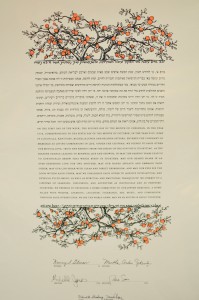When the app I built, Menu and Hours, was released a couple years back it only got one piece of criticism that really surprised me: it wasn’t friendly to visually impaired users and it really should have been. The app made it dead simple to access the location, hours and menu information of local restaurants. The app was a direct response to restaurant websites that were image heavy or built in flash or only had PDF menus. As a non-visually impaired person those things were very frustrating to me, particularly on mobile devices. But imagine how frustrating it must be for those who rely on voiceover technology, at least partially, for mobile experiences. I didn’t imagine it. It wasn’t something I thought about at all. That was a tremendous failure on my part.
I was very lucky that a kind person affiliated with the American Printing House for the Blind pointed out how valuable the app could be to visually impaired users and how easy it was to update the app to make it friendly to those users. So I updated the app and it was a moment of such joy. It truly felt like “I make silly things on the internet but this is something good, this can help people.”
Menu and Hours died over a year ago (tldr: spent all the money I’d earned with the iOS version building an Android version that didn’t come close to recouping expenses) so thinking about it is bittersweet for me. But I’ve been reading a lot about diversity (or the lack of) in the tech industry lately and this incident keeps coming to mind. I think diversity for diversity’s sake is a good thing. I think it’s generally a better, more fulfilling experience to engage with people who are not exactly like you in terms of race, religion, geography, political opinions, sexuality, sports team affiliations, etc. I also think it’s just the right thing to do to acknowledge and respect these differences. But as far as diversity in tech goes I just keeping thinking about Menu and Hours. Specifically I keep thinking: I didn’t know what I didn’t know.
I didn’t know that the accessibility standards we used building Menu and Hours weren’t perfect. I didn’t know how a visually impaired person would actually use Menu and Hours in the real world. I didn’t know why the way we had done a couple things were problematic. I didn’t know what I didn’t know.
When I finally did know, I made Menu and Hours a better product. I’m proud of that. I think about how many other apps could potentially be made made better if the teams building them were pulling knowledge from a wider pool of backgrounds and experiences. I’m ready for tech at large to be more inclusive and welcoming but really I’m ready for the awesome stuff that will come out of it.
